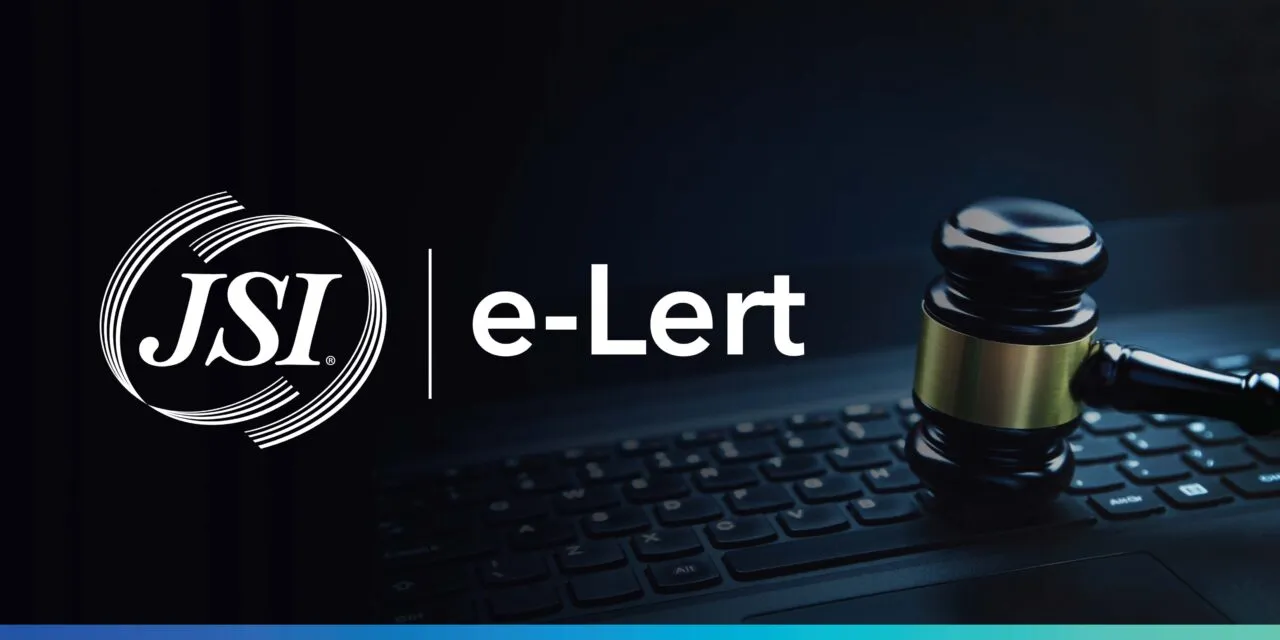
FCC Makes Subtle Updates to Its Broadband Data Collection Processes

FCC Makes Subtle Updates to Its Broadband Data Collection Processes; Strong Advocacy Efforts Needed to Elicit Necessary Major Changes
The Federal Communications Commission (FCC) recently issued a Fourth Report and Order, Declaratory Ruling, and Further Notice of Proposed Rulemaking (Fourth Report and Order) regarding changes to its Broadband Data Collection (BDC) processes. The FCC states that these actions are to ensure that it continues to receive high-quality data as part of its BDC data-collection efforts and to ensure the accuracy of the data on the National Broadband Map (NBM).
Unfortunately, these incremental updates and proposed changes are subtle and do not reflect major changes to the cumbersome input and the challenge process that broadband providers must encounter. Accordingly, JSI urges clients to actively persuade the FCC to address the more burdensome and flawed aspects of the BDC by filing comments and conducting ex partes.
Active participation in this proceeding is especially important because the FCC has made the BDC an important part of its plans for current and future Universal Service Funding programs. In addition, the BEAD program heavily relies on the BDC, which will ultimately be used to determine if locations are available for funding. Because of this, advocating efforts before the FCC are critical to ensure that the Fabric and data on competitors’ broadband availability are as accurate as possible. The only way that the FCC would consider making the major changes needed to address these vital concerns is by explaining in comments and ex partes about the specific difficulties that your company has encountered in correcting the Fabric and challenging competitor’s data and providing actual examples of such difficulties.
What is in the FCC’s Order, Declaratory Ruling, and FNPRM?
Fourth Report and Order
- Challenge Process. Adopts rules codifying the 90-day challenge process deadline required by the Infrastructure Investment and Jobs Act (IIJA).
- Audits. Delegates authority to the Office of Economics and Analytics (OEA) to conduct audits of broadband data submitted by providers and to establish methodologies and procedures for selecting service providers, targeted locations, or areas for random audits.
Declaratory Ruling
- Restoration of Locations. Clarifies that providers must submit more detailed data in subsequent BDC filings when claiming availability for locations or areas that were previously removed through the challenge, verification, or audit processes.
- Data Specifications. Delegates authority to OEA to develop and publish detailed data specifications setting out the categories of information a provider must submit when seeking to restore a previously removed location or area through a subsequent BDC filing.
Fourth Further Notice of Proposed Rulemaking
The FCC seeks comment on proposed changes to the availability data filing process, as well as possible amendments and clarifications to several data-validation rules.
- Grandfathered Services. Proposes to amend rules to permit filers to indicate that the service offered at a location is a grandfathered service (no longer offered to new customers) and allow providers to submit a request for confidential treatment of such data and, if granted, not publish such data on the NBM. This is important where you may have overbuilt copper with fiber and have not required your copper customer to migrate to fiber.
- Terrestrial Fixed Wireless Spectrum Authorization Information. Seeks comment on proposed rule changes that will allow the FCC to better verify the terrestrial fixed wireless service availability data.
- Licensed Fixed Wireless. Propose to require providers to submit all call signs and lease IDs (including the call sign(s) of the license(s) being leased) associated with the licenses held or leased by the filer and the FCC Registration Number (FRN) of the entity holding the license or lease as recorded in the FCC’s Universal Licensing System (ULS).
- Unlicensed Fixed Wireless. Propose requiring providers to submit the FCC ID(s) of all base station transmission equipment used.
- BDC Data Validation Processes. The FCC seeks comments on several proposed changes to its rules to improve the validation, audit, and Fabric challenge processes and facilitate provider certification of BDC submissions.
-
- Professional Engineering Certification. Seeks comment on whether it should eliminate the requirement that parties provide a certification by a licensed professional engineer. In its place, all providers must submit a certification of the accuracy of their submissions by a “qualified engineer” meeting the engineering qualifications outlined in the 2022 BDC PE Order and the PE Waiver Extension Order.
-
- Data Retention Requirements. Proposes that providers must retain for three years the underlying data used to create their biannual submissions, respond to challenges, or respond to verification inquiries and audits.
-
- Sharing Fabric Challenges with Providers. Proposes amending rules to eliminate the requirement that the BDC system alert a provider of accepted Fabric challenges and that service providers be afforded an opportunity to respond directly to Fabric challenges. Because fabric challenge results are made available to providers upon final adjudication, providers can challenge any results with which they may disagree for the next cycle.
-
- Audit and Verification Determinations. Seeks comment on formalized procedures to govern determinations made as a result of audits and verifications of information. Asks if the FCC should remove locations or areas from a provider’s availability data should an audit or verification find that the data are deficient or unverifiable and require the provider to correct its availability data within 30 days.
-
- Data Requirements for Restoration of Locations Lost or Conceded to Challenges. Seeks comment on the types of data or evidence that should be considered to justify restoration of locations previously conceded or lost to fixed Challenge Category Codes 1, 2, and 3. Seeks comment on whether it should also allow mobile providers to restore an area by providing on-the-ground speed test data.
-
- Aligning Reporting Requirements for Broadband Availability and Subscribership Data. Propose to modify the definition of “broadband connection” used in Form 477 to align with the definition of “broadband internet access service” used in the BDC. Or as an alternative to conforming the scope of the Form 477 to meet the BDC, instead change the Form 477 to capture mass market and non-mass market connections separately.
Why are these changes and proposed changes important?
Under the current rules, the FCC has been able to audit the data submitted by providers, but it has now formally delegated audit authority to the OEA. The OEA can use existing methods and data specifications or develop new audit and verification methods and require new data specifications in the future. Providers can be prepared for audits by ensuring they are familiar with the FCC’s current version of the Broadband Data Collection, Data Specifications for Provider Infrastructure Data in the challenge, Verification, and Audit Processes (BDC Data Specifications). Providers should also maintain the required data outlined in the BDC Data Specifications publication.
Regarding the FNPRM, the proposed elimination of the requirement to have a PE certify the BDC filings may seem helpful; however, will this prevent bad actors from being held accountable for reporting inaccurate availability data? JSI encourages clients to participate in the rulemaking to ensure that all reporting providers are held accountable for the data submitted.
In sum, these changes and proposed changes do not address the burdensome and flawed aspects of correcting the Fabric and challenging competitors’ data. Accordingly, JSI encourages companies to participate in filing comments and conducting ex parte meetings, providing their unique experiences, and urging the FCC to make major, meaningful changes to address these flaws. This is your chance to bring up larger issues regarding the problems with the BDC process. JSI will be glad to discuss the impact of these changes and answer any questions. If you have questions or would like to discuss filing comments in this rulemaking, please contact Lans Chase or John Kuykendall.










